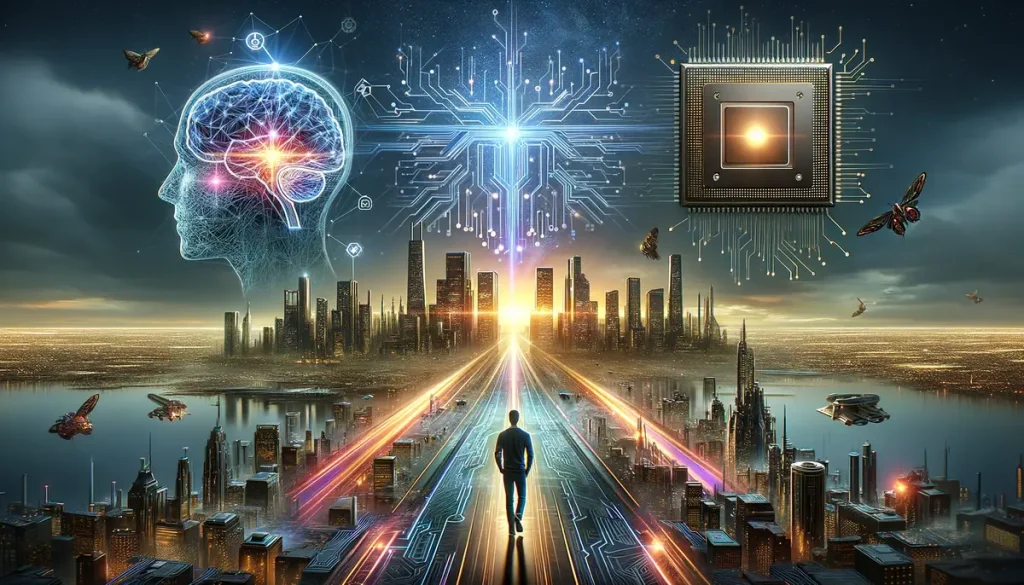“Over the last 10-15 years, almost everybody who sits on a stage like this would tell you that it is vital that your children learn computer science, everybody should learn how to program. In fact, it is almost exactly the opposite. It is our job to create computing technology such that nobody has to program, and that the programming language is human. Everybody in the world is now a programmer. This is the miracle of Artificial Intelligence!”
Nvidia’s CEO, Jensen Huang, recently ignited a fervent discussion within the tech community with his audacious assertion: Artificial Intelligence is poised to revolutionize the landscape of coding, potentially rendering traditional learning methods optional. This declaration marks a paradigm shift in our understanding of programming, heralding an era where AI becomes the primary tool for software development.
In the past, mastering coding was deemed essential for success in the tech industry. However, Huang challenges this conventional wisdom, suggesting that the rise of AI necessitates a reassessment of our priorities. With the rapid advancement of generative AI and natural language processing, coding skills may no longer hold the same elevated status. Instead, Huang advocates for redirecting our focus towards fields like agriculture and education, where AI’s transformative potential can be harnessed to address pressing global challenges.
Huang envisions a future where technology becomes so intuitive that programming becomes second nature to everyone, facilitated by the simplicity of our native languages. In this vision, the complexity of traditional coding languages is supplanted by AI-driven solutions that enable individuals to communicate their ideas effectively without specialized training.
However, Huang emphasizes that this evolution does not signify the demise of coding expertise. A foundational understanding of coding principles remains essential, particularly for effectively leveraging AI in problem-solving scenarios. Upskilling in AI programming will be crucial to ensure individuals comprehend not just the ‘how’ but also the ‘when’ of employing AI algorithms.
In the words of Jensen Huang, as we embark on this transformative journey where Artificial Intelligence reshapes the very fabric of coding, let us not forget the essence of technology: learning, applying, and exploring. While the tools may change, the spirit of innovation remains constant, driving us ever forward into uncharted territory.
Artificial Intelligence’s Impact on Employment: Insights from Nvidia’s CEO Jensen Huang and Satish H C
Artificial Intelligence (AI) has become increasingly prominent in both personal and professional spheres. In recent months, its impact on the job market has drawn attention, with major tech companies like Google, Meta, and Amazon laying off thousands in 2024. This concern has been underscored by industry leaders, including Nvidia CEO Jensen Huang and Satish H C, an executive vice-president at Infosys, who emphasized the transformative effect of AI on employment.
Nvidia CEO Jensen Huang predicts a significant shift in the role of coding due to AI advancements. Huang suggests that AI may render traditional coding skills obsolete, as it enables individuals without programming expertise to develop complex programs easily. This signals a departure from coding as a specialized skill to a more universal ability, potentially leading to AI replacing coders.
Huang’s vision for the future of computing technology revolves around creating systems where programming becomes unnecessary, with AI facilitating human-language-based interactions. He envisions a world where everyone, regardless of technical background, can harness the power of Artificial Intelligence without needing to write code.
In Huang’s words,
“It is our job to create computing technology such that nobody has to program, and that the programming language is human. Everybody in the world is now a programmer. This is the miracle of AI.”
Satish H C echoes Huang’s sentiments, emphasizing the need for organizations to adapt to the evolving landscape shaped by Artificial Intelligence. He advocates for reskilling initiatives to equip workers with the necessary AI-related skills, ensuring their relevance in a rapidly changing job market.
As Artificial Intelligence continues to reshape industries and redefine the nature of work, Huang and Satish’s insights highlight the imperative for individuals and organizations to embrace AI-driven transformations and prepare for the future of employment.
Read More: Maximizing Event Attendance with AI-Driven SMS Invitations
Reflections on My Journey Through Coding
Reflecting on my own journey into the coding realm, I recall the initial allure of creating something tangible from mere lines of code. From the simplicity of HTML and CSS to the complexities of Java and C++, each language presented its own challenges and rewards. Yet, the overarching lesson was clear: mastery of programming requires dedication, persistence, and a willingness to adapt to evolving technologies.
Prospects for Programmers in the Era of AI
As we contemplate the future of programming in the age of Artificial Intelligence, one question looms large: will Artificial Intelligence render programmers obsolete? While Artificial Intelligence undoubtedly augments our capabilities, the nuances of legacy code and the need for human oversight suggest that programming jobs will evolve rather than disappear. The integration of AI into coding represents a new frontier, where the boundaries of possibility are continuously expanding.

